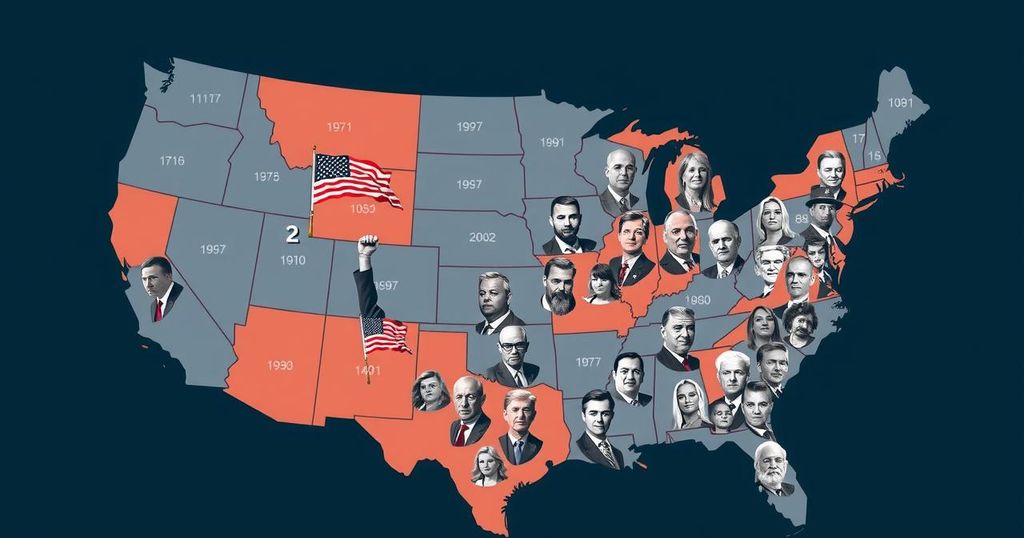The imminent U.S. presidential election features Vice President Kamala Harris and former President Donald Trump, both of whom embrace extremist white-wing views. The election’s results are anticipated to have global ramifications, particularly concerning entrenched U.S. support for Israel, anti-immigration stances, and climate inaction. The circumstances pose risks to international order and may foster further extremism on a global scale.
As the United States gears up for a pivotal presidential election on November 5, the leading candidates, Vice President Kamala Harris and former President Donald Trump, are finalizing their campaigns amidst a backdrop of rising extremism rooted in white-wing politics. This election, touted as one of the most critical in a generation, has far-reaching implications not only for the United States but also for global stability. With over 160 million registered voters, the attention of international observers, particularly those in North America and northern Europe, is firmly fixed on this election, given its potential to sway political opinion among predominantly Caucasian demographics. However, for many outside the Western sphere, the fundamental differences between the Harris and Trump campaigns appear limited, particularly regarding foreign policy and attitudes toward racial issues. Both candidates have demonstrated extremist tendencies regarding their positions on international conflicts, notably those involving Israel and Palestine. While Vice President Harris has called for an end to violence and has suggested potential cuts to military support for Israel, her statements have been met with skepticism. In contrast, Trump and his party’s strong allegiance to apocalyptic Christianist ideologies facilitate an unyielding support for Israel, regardless of international law. Both candidates have also rebuffed the findings of international bodies that have condemned Israel’s actions in Palestinian territories as violations of human rights and international law. This dismissal highlights a broader trend of American exceptionalism, wherein candidates align with a historical narrative that traces back to colonial and racial injustices. Moreover, both campaigns are characterized by a strong anti-immigration rhetoric, with policies that reflect an enduring resistance to inclusivity in a nation described historically as a “nation of immigrants.” This contradiction reveals a concerning reluctance to acknowledge the contributions and rights of migrants, which has fueled xenophobia across political lines. In matters of environmental policy, both candidates are positioning themselves in favor of fossil fuel extraction methods such as fracking, despite global calls for action against climate change. This political stance underscores the United States’ inconsistent engagement with international agreements aimed at environmental protection and human rights.
The context for this article revolves around the upcoming U.S. presidential election, considered one of the most significant elections in contemporary history. The article critiques the candidates’ alignment with radical political ideologies, particularly focusing on their stances regarding international conflicts, immigration, and environmental policy. The piece addresses the historical roots of U.S. political attitudes towards race and foreign policy, particularly in light of ongoing global issues such as the Israeli-Palestinian conflict and climate change.
The upcoming U.S. presidential election poses critical questions regarding the future trajectory of American politics, especially concerning the rise of extreme white-wing ideologies and their impacts not only within the United States but also on global affairs. Potential outcomes may exacerbate existing political divisions, environmental degradation, and disregard for international norms, heralding a period of uncertainty and concern for countries observing the election closely.
Original Source: www.aljazeera.com






